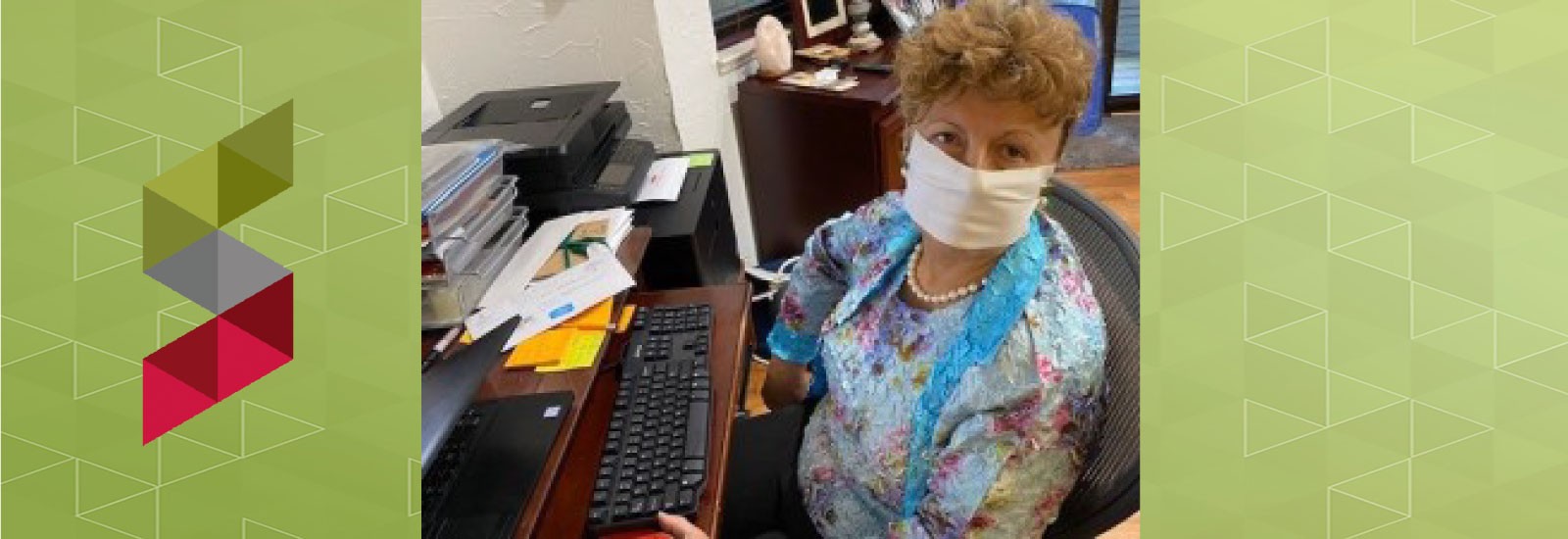While many people are encouraged and, in some cases, mandated to wear face masks to prevent the spread of COVID-19, there are some complaints that have become a common refrain: the mask doesn’t fit correctly, it’s uncomfortable, it’s too hot, or the mask is hard to breathe through.
However, a material scientist at The Ohio State University College of Food, Agricultural, and Environmental Sciences (CFAES) is working to change that.
Judit Puskas is in the final stages of developing a new polymer face mask that she expects will be more effective in the fight against COVID-19. Puskas, who is a Distinguished Professor in polymer science in the CFAES Department of Food, Agricultural and Biological Engineering and a Sustainability Institute core faculty member, has a provisional patent application pending for the mask she is developing.
She’s working with the Mayo Clinic to create and test the mask to meet the same safety and efficacy standards of an N95mask, but with more comfort and usability for the wearers. Puskas’ mask is made of a nonwoven fabric comprised of biocompatible rubber composite formed into a fiber mat that can be used to create personal protective equipment including face masks.
The goal, she said, is to offer alternatives to the current market of N95 masks that can be used by workers in a wider variety of conditions and situations.
“The current N95 masks protect against the virus, but most people say the masks aren’t comfortable and aren’t easily breathable,” Puskas said. “There are other polymer fiber mats used in N95-equivalent masks, but they are based on rigid plastics and don’t offer much flexibility.
“The material I’ve developed is a flexible, breathable rubber, that can be made into comfortable-fitting masks. Additionally, it’s water repellant, doesn’t allow sneeze particles through, nor will it let moisture build up on the mask from breathing. This rubber can also be used in hot, humid conditions as well as in a freezer, can be easily sterilized in water-based solutions, and is recyclable for multiple reuse.”
It’s for those reasons that Puskas’ masks, once completed, will be tested by more than 100 workers in five meat processing plants across Ohio to gauge the masks’ effectiveness for agricultural workers in hot, humid conditions.
CFAES researchers including Lyda Garcia, an assistant professor of meat science, Mary Rodriguez, assistant professor of community leadership and Sustainability Institute affiliated faculty member, and Joy Rumble, assistant professor of agricultural communication, are working with meat processors statewide to determine the barriers workers face when considering masks as personal protective equipment to reduce the potential spread of COVID-19.
Read more about Ohio State researching, testing polymer face masks to protect against COVID-19
